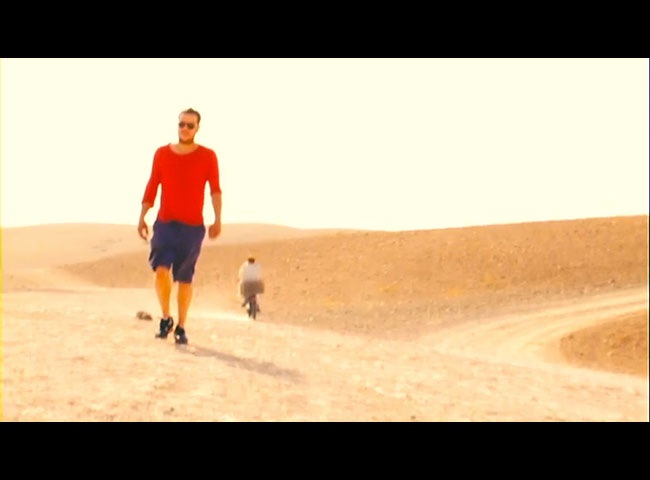Encré
-
Réalisé par Rachid Djaïdani • Écrit par Rachid Djaïdani
-
France • 2014 • 73 minutes • Couleur
- Réalisation :
Rachid Djaïdani - Écriture :
Rachid Djaïdani - Image :
Rachid Djaïdani - Son :
Rachid Djaïdani - Montage :
Rachid Djaïdani, Svetlana Vaynblat
- Production (structure) :
Sabrazaï films - Ayant droit :
Sabrazaï films
- N° ISAN :
ISAN 0000-0005-1896-0000-0-0000-0000-3
Résumé
""On ne travaillera plus ensemble. Y a qu’avec toi qu’il y a eu un souci..." De la rupture initiale avec ses galeristes français à sa première exposition à Manhattan, Encré avance par traits et par touches, en écho avec l’art mixte de Yaze, le plasticien dont il fait le portrait. La musique participe de ces différentes strates : au duo père-fils qui la compose et l’interprète (Sylvain et François Rabbath) répond un échange entre le peintre abstrait et son père, auteur de paysages figuratifs. Ouvert sur la solitude de l’artiste en "galère" d’atelier et de galerie, Encré déploie autour de lui une constellation, tandis qu’en parallèle, la préparation du premier accrochage à Manhattan le fait voyager au Maroc, où il commande à des artisanes des broderies au fil d’or et d’argent. À trente-trois ans, il vit jusque dans son quotidien les doutes de l’autodidacte. Mais la durée du tournage et le regard affectueux que pose sur lui Rachid Djaïdani contribuent à "encrer" la fermeté de son geste. Le chantier de la galerie new- yorkaise, qui se confond inopportunément avec la confection des œuvres, renvoie le Français à sa solitude en des séquences parfois cocasses. L’oscillation de Yaze entre l’affirmation de sa singularité artistique et la précarité de son statut s’offre en miroir d’un marché de l’art déréglé, ou du moins ballotté entre la fragilité subjective d’une évaluation et l’enjeu commercial qui s’y attache."
(Charlotte Garson - Cinéma du réel)
“"Our working together is over. It’s only with you that there’s been any trouble..." From the artist’s initial rupture with his French gallery owners to his first Manhattan exhibition, Color Box advances in strokes and touches, echoing the mixed techniques of Yaze, whose portrait it draws. The music adds to these different layers: the father-son duo (Sylvain and François Rabbath) who composed and perform it is mir- rored by the exchange between the abstract painter and his father, who paints figurative landscapes. Exploring the solitude of the artist struggling for a studio and gallery, Color Box sur- rounds Yaze with a whole constellation, while in parallel preparations for his first exhibition in Manhattan take him off to Morocco to order gold and silver embroideries from village craftswomen. At the age of thirty-three, he is experiencing the doubts of a self-taught man, which even permeate the corners of his everyday life. But the year-long shooting and Rachid Djaïdani’s affectionate view of him help him to assert his art and way of being. The New York gallery’s work in progress, which inconveniently coincides with his own creative work, reminds Yaze of his solitude, in sequences at times tinged with comedy. The artist’s swings between assert- ing his artistic uniqueness and real- ising the precariousness of his position reflect an art market that is dysfunctional or at least buffeted between the fragile subjectivity of pricing and the associated commercial stakes."
(Charlotte Garson - Cinéma du réel)
Sélections et distinctions
- 2015 • Toiles sous toile • Clichy-sous-Bois (France) • Sélection
- 2015 • Cinéma du réel • Paris (France) • Compétition Française




